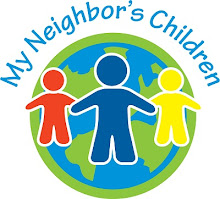HAITI - The Invisible Recovery
January 12 marked the anniversary of one of the most catastrophic events in history. Unfortunately, it took place in a small country that happened to be one of the poorest in the world - the country of Haiti. As many as 300,000 people died that afternoon in 2010, countless tens of thousands were injured, and over a million were left homeless with no hope of a home for their foreseeable future.
How do you recover from such a thing? Can you recover?
In Haiti, many asked the question, "What would you recover too?" The situation in Haiti was so bad before the quake, the country already needed recovery. There were better days in many ways. Better economics. Better security. Better roads. Better education. Better opportunities for many. But with those better days also came a brutal dictatorship that strangled the freedoms of many and unwisely centralized Haiti's internal structures.
For years, Haiti's reputation became "the poorest country in the western hemisphere - because of corruption." Leadership basically consisted of the Duvaliers, Preval, and Aristide. These men came to serve as the most powerful men in Haiti over the past 50 years. Each represented corruption, accusations of the murder of dissidents, self promotion and preoccupation, personal gain, and a total lack of care for the country of Haiti and its people.
During Baby Doc, Aristide, Preval, and periods of occasional military control, the people of Haiti suffered as the economy declined, education disappeared, and the country spiraled into deep decay. The decay was visible on every level of Haiti's infrastructure. But somehow in the midst of it all, the people of Haiti (at least those who stayed) managed to maintain a national pride that exists in great strength to this day.
The quake was clearly the most horrible event in Haiti's history. One pastor shared a story with us that his mother came out from her damaged building after the quake, looked at the destruction and dead bodies all around and was so overcome that she had a heart attach and died. As we traveled to the Presidential Palace - Haiti's Whitehouse - immediately following the quake, hundreds of people were gathered on the street in front of the palace weeping at their losses. The loss of loved ones and friends, the loss of homes, the loss of a sense of security, and as important as all of those - the loss of so many of the remaining things that made them proud to be Haitian. About the only thing left they could point to to show their national pride was the simple fact that they were Haitian born.
As horrible as the quake was, it garnered attention and compassion from around the world. If there has been any glimmer of hope since that terrible day, it has been that the attention and support of the world could help create changes in Haiti that would rebuild and restructure the country into a "nation of people" instead of a small group of greedy leaders who siphon the needed dollars away to some foreign account for their personal gain.
Every time I return from Haiti, I am asked the question, "Is it getting any better down there?" Early on, I would immediately think about the rubble cleanup and the rebuilding of structures. Those things for quite a while were going slow. Tent cities still lined the roads, but the tents were now old and tattered. Rubble still could be found everywhere on the sides of roads. Occasionally, you could see a piece of heavy equipment in use. That was the typical scene before the election.
After the election, things began to improve. Nations who had been burned before by Haiti's corruption wisely held pledged money until the new president was placed in power. This new president, Martelly, began to address structural changes that included much needed leadership changes. The level of accountability began to increase. He represented the voices of the people and has not forgotten those voices. For the first time, a man was elected who was not connected to one of the three most powerful men who had ruled Haiti over the past 50 years.
Change has begun. It is visible in many places. Economic changes in Port au Prince and Cap Haitien are noticeable. Industrial parks are springing up in both cities. A university has been completed in Cap Haitien that will educate several thousand students. Outside investors are being attracted to Haiti on a daily basis. The coffee industry is being revived. These are all good signs of the beginning of a recovery.
But when I am asked this question today I think about a bigger picture. The recovery that Haiti is beginning to experience is more evidenced in what is not visible. It is in the spirit and hope of the Haitian people. Their national pride has risen significantly. Their sense of hope can be detected on every level of society. As they go about their daily work, whether as a self-employed vendor, a teacher in a church school, an employee of a local government, or a newly employed construction worker, there is hope. For many, circumstances have not improved much, but their hope in Haiti's future is greater than ever.
Perhaps the most powerful force behind the great future Haiti has in front of it is the Invisible Recovery that is taking place in the hearts and minds of the Haitian people.
To the people of Haiti, we applaud you.

